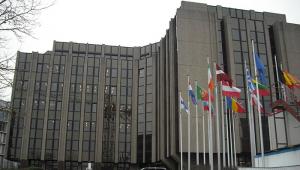A European Court of Auditors special review focused on 20 EU-funded airports in five member states – Estonia, Greece, Spain, Italy and Poland – which received a total EU funding of €666m during the 2000 to 2013 budget period.
The ECA’s review revealed that EU-funded investments in airports had not generated the expected results and had produced poor value for money.
Auditors identified a lack of adequate planning and forecasting, saying that some of the EU-funded airports were situated too close to one another, while some of the construction projects were too big for the numbers of planes and passengers involved.
It said only half of the 20 airports audited succeeded in increasing passenger numbers, while, in more than half of cases, increases in air traffic were significantly overestimated. At Cordoba airport, Spain, for example, fewer than 7,000 passengers travelled in 2013, against a forecast of 179,000.
The auditors also found that funding was not well coordinated by governments in Spain, Italy, Greece and Estonia, none of which had a strategic long‑term airport development plan.
Seven of the airports were not financially self-sustainable and would struggle to remain operational without more public money, the ECA said. Kastoria airport in Greece, for example, pulled in revenues of €176,000 between 2005 and 2012, but cost €7.7m to run. The auditors said a further €16.5m invested in an extension to Kastoria’s runway, which has never been used for the type of aircraft it was built for, was not an effective use of public funds.
George Pufan, the ECA member responsible for the review, said: ‘We found that some airports were not profitable in the long term, some were underused and some were not used at all.
‘If Europe is going to meet this extra demand, both the commission and the member states must improve the way they invest in our airports by funding only those which are profitable and for which there is a real investment need.’
The auditors called on the commission to ensure that, during the 2014-2020 programme period, member states only allocate EU funding to airports that are in real financial need once this has been properly assessed and demonstrated.
They also urged member states to have consistent regional, national and supranational plans for airport development to avoid overcapacity, duplication and uncoordinated investments.














